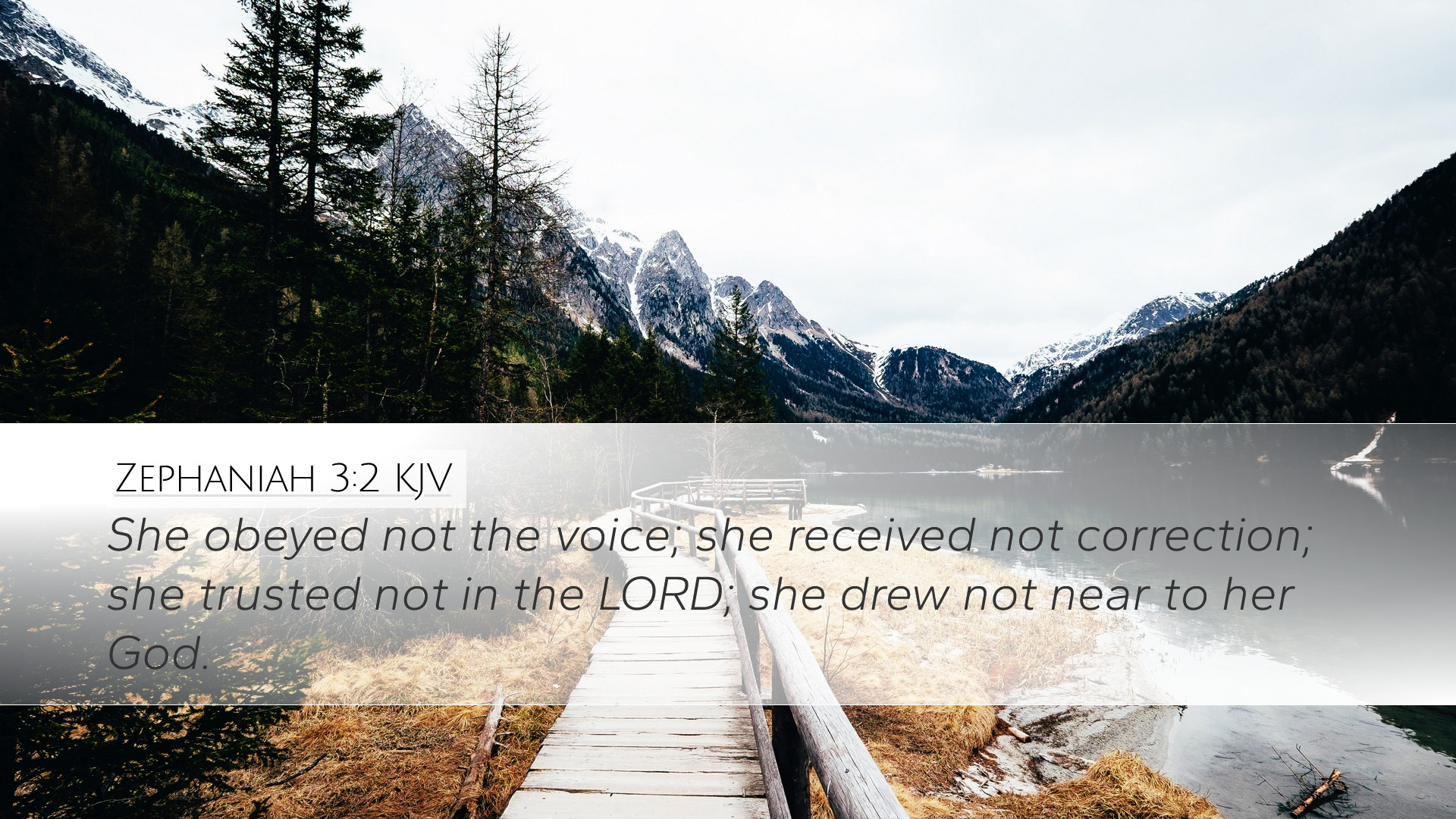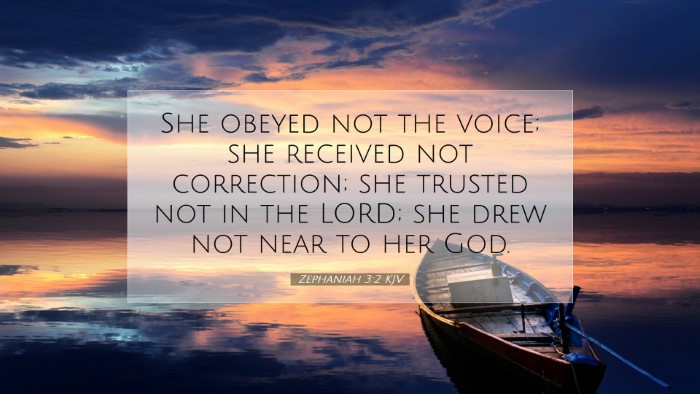Old Testament
Genesis Exodus Leviticus Numbers Deuteronomy Joshua Judges Ruth 1 Samuel 2 Samuel 1 Kings 2 Kings 1 Chronicles 2 Chronicles Ezra Nehemiah Esther Job Psalms Proverbs Ecclesiastes Song of Solomon Isaiah Jeremiah Lamentations Ezekiel Daniel Hosea Joel Amos Obadiah Jonah Micah Nahum Habakkuk Zephaniah Haggai Zechariah MalachiZephaniah 3:2
Zephaniah 3:2 KJV
She obeyed not the voice; she received not correction; she trusted not in the LORD; she drew not near to her God.
Zephaniah 3:2 Bible Commentary
Bible Commentary on Zephaniah 3:2
Zephaniah 3:2 reads: “She obeyed not the voice; she received not correction; she trusted not in the LORD; she drew not near to her God.”
This verse encapsulates the essence of disobedience and its consequences, illustrating the behavior of Jerusalem and its inhabitants during the time of Zephaniah's prophecy. It serves as a solemn reminder of the pervasive issues of spiritual apathy and rejection of divine guidance.
Contextual Background
The Book of Zephaniah is often regarded as one of the minor prophetic books of the Old Testament, yet it contains profound insights relevant to individuals and societies. Written during the reign of King Josiah (639-609 BC), a time when Judah was engulfed in moral decay and idolatry, Zephaniah's messages reflect God's judgment and call to repentance.
Exegesis of Zephaniah 3:2
The verse is structured around two major themes:
- Rejection of Divine Authority: "She obeyed not the voice..." indicates a refusal to heed God's commandments. This rejection is pivotal, as it emphasizes a breach of the covenant relationship established between God and His people.
- Failure to Respond to Correction: "She received not correction..." implies that there were numerous warnings to alter their sinful ways, yet the people remained obstinate.
Theological Insights
The theological implications of the verse are significant. Matthew Henry notes that God’s voice, when ignored, leads to severe consequences. Henry emphasizes that obedience is not just outward compliance but must arise from the heart, signifying a deeper relational disconnect with God.
Albert Barnes elaborates on the concept of “trusting in the LORD.” He points out that true trust in God goes beyond acknowledgment of His existence; it demands reliance and confidence in His plans, which the people failed to affirm.
Adam Clarke highlights the last phrase, "she drew not near to her God." This denotes an abandonment of the worship practices and rituals that facilitate a closeness to God. Clarke emphasizes that the nearness to God is essential for spiritual vitality and growth.
Application for Modern Readers
This verse resonates deeply with contemporary believers, especially those in leadership. It serves as a reminder to remain vigilant and open to divine correction, recognizing that spiritual complacency can lead to severe consequences.
- Reflect on Obedience: Believers should regularly evaluate their responsiveness to God's Word and directions in their lives.
- Embrace Correction: Accepting discipline from God demonstrates humility and a desire to align with His will.
- Nurturing Trust: Cultivating an unwavering trust in God's providential care and wisdom fosters a deeper relationship with Him.
- Draw Near to God: Establishing regular practices of prayer, worship, and meditation on Scripture helps in maintaining proximity to God.
Conclusion
Zephaniah 3:2 challenges the reader to confront the urgency of obedience, receptiveness to correction, trust in God, and the intentional pursuit of His presence. Pastors, theologians, and students alike can derive essential lessons from this verse that promote a deeper understanding of God’s call to repentance and relationship.


